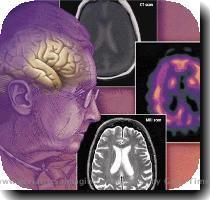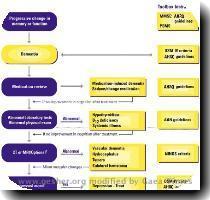New warnings linking concussions to brain injury come too late for ex-La Salle football player
By Maryclaire Dale, APTuesday, December 29, 2009
Concussion warnings come too late for NJ athlete
MARLBORO, N.J. — Tammy and Ted Plevretes don’t need more research to link football concussions to devastating brain damage.
They need only look across the kitchen table, where their 23-year-old son Preston sits mostly silent in a wheelchair, a home-health aide at his side.
Four years ago, Preston took the field for La Salle University a month after an earlier concussion. He collided head-on with an opposing player on a punt return at Duquesne University on Nov. 5, 2005. He was briefly knocked unconscious, awoke and was combative for a few minutes, then lapsed into a coma.
He survived lifesaving surgery to remove a massive blood clot, and has since endured three more brain operations, a trip overseas for a stem-cell transplant and years of grueling therapy. Yet his progress has been limited, and he struggles to walk and talk.
This fall — amid rising awareness in the NFL about the long-term effects on the brain of repeated concussions — the Plevretes family settled a lawsuit against La Salle for $7.5 million. The suit charged that the Philadelphia school failed to treat Preston’s first concussion properly, causing the later catastrophic injuries from what some doctors call “second-impact syndrome.” La Salle argued the injuries stemmed solely from the hit at Duquesne.
“We still love football. We don’t want anyone to stop playing it,” said Tammy Plevretes, 49, of Marlboro, N.J., whose 60-year-old husband once played for the rough-and-tumble, semi-pro Brooklyn Mariners.
“(But) I think kids need to see what can happen,” she said. “This isn’t a broken leg. It’s a broken life.”
Preston was fortunate to be injured a few blocks from Mercy Hospital in Pittsburgh, where a pair of neurosurgeons on duty whisked him into an operating room. They removed a massive hematoma, staunched the bleeding and relieved the near-fatal pressure inside his skull.
Dr. Robert Cantu, a Boston-area neurosurgeon, served as the family’s medical expert for the lawsuit. Cantu testified at this year’s Congressional hearings on NFL concussions, telling lawmakers there is “growing and convincing evidence” that repetitive concussions can cause degenerative brain disease.
Preston’s erratic on-field behavior, combined with the excessive bleeding, point to second-impact syndrome, he said.
“He enters the game symptomatic (for concussion). That sets him up for another injury causing this malignant brain swelling,” he said.
Once a person is vulnerable, additional brain trauma does not always have to be severe to cause devastating damage, Cantu said.
“The second blow may be remarkably minor, perhaps only involving a blow to the chest that jerks the athlete’s head and indirectly imparts accelerative forces to the brain,” Cantu wrote. Death can occur within minutes when the brain ruptures from the brain stem.
Such catastrophic injuries are rare. Cantu has treated about eight cases similar to Preston’s, many of them youth football injuries.
The more common concern for NFL players — or anyone suffering multiple concussions — is dementia, depression and other neurological problems as they age.
“That’s my biggest concern. How am I going to be when I’m 50 or when I’m 60? Will I have all these brain diseases and will I have a problem remembering things?” Brian Westbrook of the Philadelphia Eagles said after suffering two concussions in a three-week span this fall.
Westbrook, who missed seven games before returning to action Sunday, was not alone on the sidelines. Both of last season’s Super Bowl quarterbacks, Ben Roethlisberger and Kurt Warner, and numerous other high-profile players sat out at least one game this season with concussions.
That’s a stark turnaround from the days when such injuries often were ignored or hidden.
“Young athletes are horrible self-reporters. They want to please, they want to play, especially with a macho thing like football,” said Brian Mason, who directs CentraState Wellness and Fitness in Freehold, N.J., where Preston spends much of his week in therapy.
The Plevretes, who refused to sign a confidential legal settlement, want youngsters to protect themselves.
“Be — safe,” said Preston, mustering the focus and strength he needs to string together short, whispered phrases. “Do you — want — to end up — like me?”
By all accounts, 6-foot-3, 220-pound Preston Plevretes was a gung-ho jock — just the type who might ignore an injury to play. He also was dueling for a starting linebacker spot at La Salle.
“He was a tough kid on the field,” then-coach Phil Longo testified in his deposition.
A 19-year-old sophomore, Preston had missed his freshman year due to grades and was sidelined early that fall with a broken hand.
La Salle had orthopedists on call for broken bones, but the team had no neurologists lined up to consult about head injuries. Staff referred players to the student health center unless a trip to the emergency room seemed in order, according to trainer Bill Gerzabek.
“It would take probably two months for the office visit (with a neurologist),” Gerzabek said in his deposition.
In October 2005, Preston returned to action just two weeks after hand surgery, still sporting a cast. In an Oct. 8 game at Marist University, he complained of headaches and told Gerzabek for the first time that he had head-butted someone at practice four days earlier. He left the game and was referred to the health center, where Preston saw a nurse practitioner on Oct. 10th. She performed a standardized concussion test, but gave it incorrectly, the lawsuit alleged.
The next day, Ted Plevretes took his son to their local emergency room, and for an eye exam because Preston complained about his vision. The head scan proved negative, and Preston returned to the student clinic for follow-up on Oct. 12. He said he did not have a headache that day, and, according to Gerzabek, was cleared to play four days later.
But he continued to complain of headaches to friends, most notably on Nov. 2 or 3, which his girlfriend said he spent lying down. The team left for Duquesne on Nov. 4.
“If the stories about the headaches are true, Preston not only failed to be forthright with Bill Gerzabek, but he ignored the warning label on his football helmet, which specifically warned against playing with a headache,” La Salle argued in its trial memorandum.
In a sharp about-face this month, the NFL has encouraged players and their families to cooperate with Cantu and colleagues at the Boston University Center for the Study of Traumatic Encephalopathy, who are conducting autopsies on the brains of former athletes — and finding disturbing evidence of brain damage in football players, boxers and a former NHL player.
The NFL also has issued new concussion guidelines, and ordered that independent physicians determine when a player should return. At youth levels, more teams are teaching players to recognize warning signs, including headaches, dizziness, tinnitus and blurred vision.
“The threat of lawsuit for inappropriate care is real, but I would also like to think that enlightenment is also driving it,” Cantu said.
At least one neurosurgeon, Dr. Douglas Smith of the University of Pennsylvania, fears the new rules could backfire, leading players to try to hide their symptoms. Even doctors aren’t sure when it’s safe to return.
“That’s the million-dollar question,” said Smith, director of Penn’s Center for Brain Injury and Repair. “If it were me, the appropriate time to go back is about 50 years.”
As the Plevretes shared a pizza at home this month, Ted played a videotape of Preston’s high school football banquet. A handsome, boisterous Preston brings down the house roasting his Marlboro High School coaches.
The 23-year-old Preston, watching from the kitchen, beamed what one therapist called “that million-megawatt smile he uses to charm people.” Preston always loved the limelight, and had hoped to become a sports broadcaster.
Tammy Plevretes, a former entertainer-turned-cheerleader for her son, allowed a rare wistful comment.
“It’s a little hard for mom, because I miss him,” she said quietly.
Aides tend to Preston while his parents are at work — Ted works for a financial company, while Tammy runs her own small business. Their other child, 21-year-old Perry, is in film school in Florida. The couple was watching Perry play high school football when Preston was injured.
In their absence, Longo and Gerzabek chased the ambulance on foot to Mercy Hospital. Team staff stayed in Pittsburgh for several days, while La Salle held prayer vigils and welcomed Preston back for a visit a year later.
“From the time of Preston’s injury, the university community … ha(s) been hoping and praying for his recovery. That hasn’t changed,” La Salle said in a statement. The school has since dropped football for unrelated reasons.
Preston had more brain surgery this summer to alleviate seizures, but the procedure caused other setbacks.
One recent Friday, he spent five hours at CentraState, moving through rotations of speech, occupational and physical therapy.
Preston has little short-term memory, but still manages to flash his old charisma at times. During speech therapy, he was asked which is taller, a tree or mountain?
“If a tree — is on — a mountain — then the tree — would be — taller,” he replied, grinning.
That tells the parents their eldest son is still himself.
The settlement will allow the intensive therapy to continue, and pay for round-the-clock aides and perhaps more experimental stem-cell treatments.
“My hope is that he gets his life back again,” Tammy Plevretes said. “Will anyone ever love him? Will he get married, have children, have a job? Things we all take for granted, I don’t know if he’ll ever have.”
|
December 29, 2009: 11:05 pm
Hello, I’m a mother of a 16year old son who loves football and basketball. His last season he had suffered his 2nd GRADE 3 CONCUSSION in a 11 month period. He was being told that if he got one more concussion, he would never be able to play sports again. I started to do major research on concussions and mouth guards when I came across your website. My son was fitted for a Maher mouth guard right before the football season begun. In the first game he was hit very hard and as a mom.I was holding my breath to see if he had to come out of the game. He got right up and continued playing. After the game I asked him about that hit and he said “Mom I can’t believe I didn’t feel a thing” Which ,as the season continued, he said it has helped unbelievable! I have parents coming to talk to me when their child gets a concussion to see what I have learned and what steps for protection I have taken. I truly believe that the Maher mouth guard is 100% the reason my son can continue to play sports. Thank you! Roseann Taylor Lombard , IL roseann@prismhealthcaregroup.com https://www.huffingtonpost.com/paula-duffy/the-nfl-can-help-prevent_b_351212.html |


steve